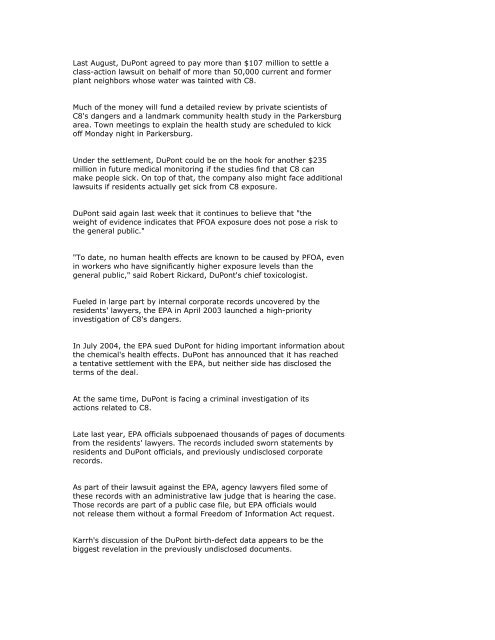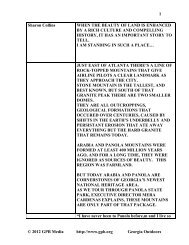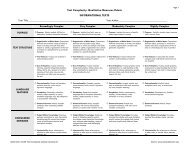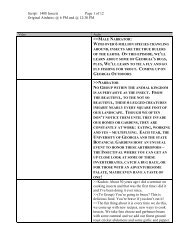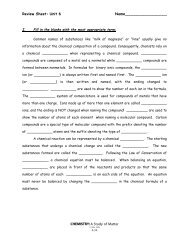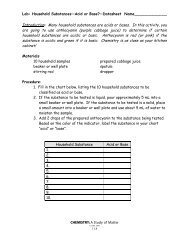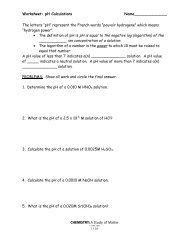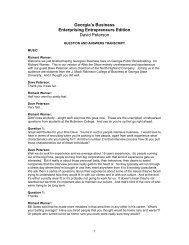PFOA stories
PFOA stories
PFOA stories
- No tags were found...
Create successful ePaper yourself
Turn your PDF publications into a flip-book with our unique Google optimized e-Paper software.
Last August, DuPont agreed to pay more than $107 million to settle aclass-action lawsuit on behalf of more than 50,000 current and formerplant neighbors whose water was tainted with C8.Much of the money will fund a detailed review by private scientists ofC8's dangers and a landmark community health study in the Parkersburgarea. Town meetings to explain the health study are scheduled to kickoff Monday night in Parkersburg.Under the settlement, DuPont could be on the hook for another $235million in future medical monitoring if the studies find that C8 canmake people sick. On top of that, the company also might face additionallawsuits if residents actually get sick from C8 exposure.DuPont said again last week that it continues to believe that "theweight of evidence indicates that <strong>PFOA</strong> exposure does not pose a risk tothe general public.""To date, no human health effects are known to be caused by <strong>PFOA</strong>, evenin workers who have significantly higher exposure levels than thegeneral public," said Robert Rickard, DuPont's chief toxicologist.Fueled in large part by internal corporate records uncovered by theresidents' lawyers, the EPA in April 2003 launched a high-priorityinvestigation of C8's dangers.In July 2004, the EPA sued DuPont for hiding important information aboutthe chemical's health effects. DuPont has announced that it has reacheda tentative settlement with the EPA, but neither side has disclosed theterms of the deal.At the same time, DuPont is facing a criminal investigation of itsactions related to C8.Late last year, EPA officials subpoenaed thousands of pages of documentsfrom the residents' lawyers. The records included sworn statements byresidents and DuPont officials, and previously undisclosed corporaterecords.As part of their lawsuit against the EPA, agency lawyers filed some ofthese records with an administrative law judge that is hearing the case.Those records are part of a public case file, but EPA officials wouldnot release them without a formal Freedom of Information Act request.Karrh's discussion of the DuPont birth-defect data appears to be thebiggest revelation in the previously undisclosed documents.


